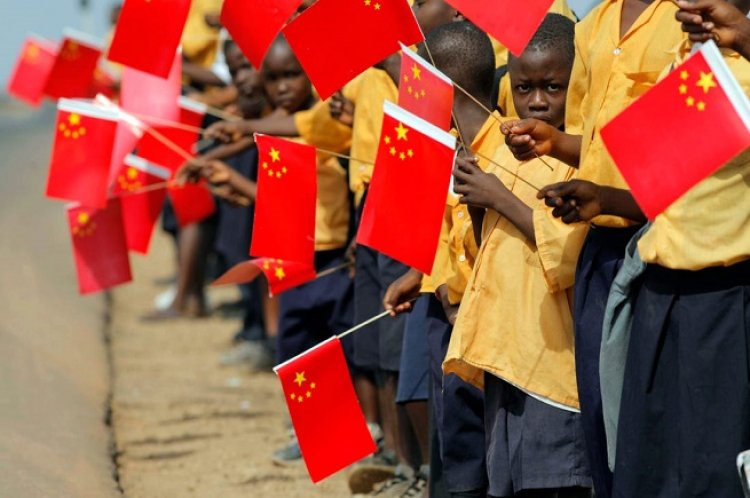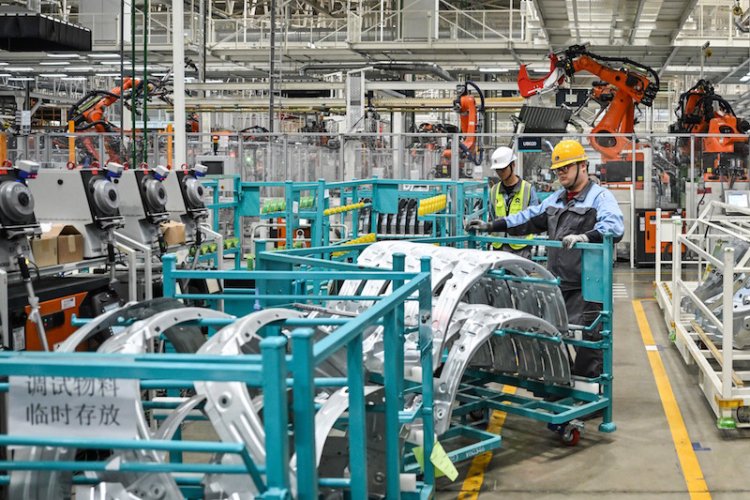An investment strategy that positions China for an economic boom in Africa

The People's Republic of China, the second largest economy in the world, is pursuing an investment strategy based on common interests that places it in the face of an anticipated and new economic boom with its partners in Africa, which will result in the construction of huge investment projects for Beijing on the African continent.
The Egyptian-Chinese Chamber of Commerce expects an increase in trade exchange between Beijing and Africa from 2025 to 2030, as China deals with political intelligence in all issues related to the African continent.
China-Africa relations
This comes despite the United States’ concern about the development of Chinese-African relations, as the spokesman for the US Department of Defense warned earlier this year that developing the relationship between African countries and China would have negative repercussions on these countries’ relationship with the United States.
The volume of trade exchange between China and the African continent grew by 7.4% on an annual basis during the first seven months of this year, according to what the Chinese General Customs Authority reported.
She pointed out that trade exchange between the two sides amounted to 1.14 trillion yuan (equivalent to 160 billion dollars) during the aforementioned period, so that China maintained its position as Africa's largest trading partner over the past decade.
African infrastructure
The Secretary-General of the Egyptian-Chinese Chamber of Commerce, Dr. Diaa Helmy, said that Chinese-African relations are strong and growing, as China has directed its strong relationship with Africa for more than 22 years, and designed lasting relations for cooperation and joint trade, as China saw from the beginning of the twenty-first century that there is a good opportunity. To cooperate with the African continent.
African countries
He added that African countries welcomed Chinese investments, and that there were many African countries that joined the Belt and Road Initiative, and then China began to include billions in African infrastructure under cooperation agreements.
He explained that African leaders have welcomed cooperation with China over the past ten years since the launch of the initiative in 2013, and it is considered a 21st century initiative, and Africa has benefited most from it, so trade between China and Africa has grown.

China-Africa trade exchange
Dr. Diaa Helmy pointed out that China motivates all African countries to import from it, in order to give them the incentive that cooperation between them is a common win, especially since China is constantly seeking to achieve common interests.
He stressed that the increase in Chinese-African trade exchange during the recent period is due to the fact that the supply chains from other countries towards Africa were characterized by weakness, so China was the closest to Africa with its political will, unlike other countries.
He pointed out that Africa is more inclined towards China, and has found its interests with Beijing and therefore wants to develop those relations with it, noting that the tensions in the Middle East will not affect Chinese-African relations.
Technology in China
He said that the Egyptian-Chinese Chamber of Commerce believes that China's experience in the region is very important, especially with Beijing's amazing technological progress, adding that China will not allow its trade exchange with the African continent to decrease during the coming period.
Helmy expected that Chinese-African trade exchange would stabilize over the next year or increase slightly and then accelerate in the years 2025 to 2030, and then trade is likely to increase, especially since China deals with political wisdom in political issues as well as in economic matters.

Belt and Road Initiative
The launch of the Belt and Road Initiative dates back to the year 2013, when Chinese President Xi Jinping proposed building the Silk Road Economic Belt, which over time turned into a major platform for building a shared future for humanity and a public benefit at the international level.
China was able to establish economic and trade cooperation zones in countries located along the Belt and Road, with investments amounting to $30 billion, and created about 244,000 local jobs. China also signed free trade agreements with many countries, half of which are located along the Belt and Road.


 Shrouq
Shrouq 












